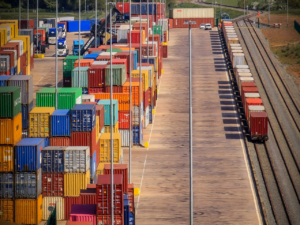Whilst South Africa is two weeks into a 21-day lockdown, most of the world has been shaken to its core.
An estimated 20% of the global population is in some form of a lockdown and those who are not in government-mandated lockdowns are mostly taking extreme measures to self-isolate to contain the rapid outbreak of this global pandemic. Considering the coronavirus pandemic, many industries and businesses have had to quickly adapt and change to the “new normal”. This rapid outbreak has impacted global markets in unprecedented ways since its arrival. As with many businesses and industries, the container industry has been and will be impacted – and changed in many ways. Kashief Schroeder, owner and co-founder of CIT Container, sheds some light on the impact COVID-19 has had on the container industry. Reduced demand for containers China, the world’s manufacturing-powerhouse, was first hit by the outbreak of the Coronavirus and implemented restrictions and lockdowns earlier this year. These had a huge impact on the manufacturing of goods and containers and South Africa is only starting to feel the impact of this now. Because production and export from China were halted the demand for shipping containers has been drastically reduced, both locally and internationally, as fewer goods are being shipped and fewer containers are being produced.Decreased volume of containers entering South Africa
Along with the delayed production in China, South Africa started a government-mandated lockdown on 27 March 2020. The lockdown only allows for essential goods to be imported and exported into and from South African ports. The combination of these events has led to a decrease in the volume of containers entering South Africa which has a drastic effect on the South African demand for containers. International price hikes Schroeder also foresees an increase in the prices of containers. Prices will be increased to alleviate lost revenue from ceased production of both containers and exported goods. Fewer containers are also being circulated internationally which will also contribute to the rise in prices of containers. However, Schroeder feels that it’s not all doom and gloom for the container industry and businesses as a whole. It is important to look ahead and plan a way forward in these uncertain times. Although the Coronavirus pandemic will have an enormous impact on the global economy, there are also new business opportunities arising that industries can invest in. South Africa, and the rest of the world, are very dependent on Chinese production. Schroeder points out that this is the time for Africa to become more self-sufficient. “Africa has abundant natural resources and vast land with mining and manufacturing opportunities. In the future, we should be able to manufacture our own goods and towards being export-driven rather than import-driven.“As we settle into our new work-from-home routines one thing is assured, life will continue after COVID-19, industries will change, and new opportunities lies on the horizon.”








